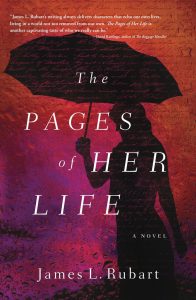by James L. Rubart, @jameslrubart
I’m de-cluttering the files on my computer and in the process I came across a column I wrote for a magazine back in February of 2010. After reading it I thought, “This holds up pretty well.”
So if you don’t mind a few pop culture references that are out of date, I think you might find it helpful.
“The risk of insult is the price of clarity.” -Roy Williams
How many of you loved The Shack? How many of you can’t stand the book and feel almost insulted by its massive success?
How many of you tore through the Twilight books in a week? How many of you wonder how Stephanie ever got published?
James Cameron’s latest, Avatar, is smashing box office records, but not everyone is feeling the love.
Star Wars? Not everyone liked it. To Kill a Mockingbird? Here’s what one English teacher said about Harper Lee’s masterpiece:
OVERRATED AD NAUSEAM, October 11, 2003. “This is not great literature, and I avoid teaching it at all costs. To Kill a Mockingbird is about as deep as a rain puddle.”
No matter the success of a book, movie, song, painting, restaurant, clothing . . . some people will be on the other side decrying the product. Is this a good thing?
It’s a great thing.
Editors and agents say one of their biggest frustrations is seeing the same middle of the road story come across their desks. The writer’s craft might be solid, the story is fine, the characters are fine, it’s a fine, fine, fine story.
But fine doesn’t sell. Fine doesn’t stir up passion. And if you stir up passion about anything, there will be people on the other side.
When editors talk about searching for a winning novel, they often say, “I’ll know it when I see it.” What does that mean? It means something that is fresh, something that surprises them, something that stirs emotions inside. And you can’t do that without the high probability that you’ll cause the opposite reaction in another editor.
“It just didn’t resonate with me. You liked that?”
Donald Maass says, “80 percent of a book’s sales come from word of mouth.” Eighty. People don’t talk about books they liked. They talk about books they loved or hated.
Think American Idol for a moment. Every now and then a pretty girl or handsome guy with a strong voice will audition, and I think, She’s an automatic. They’re going to take him. But Simon often says, “Sorry, you’re the same as every other pretty girl and good-looking guy with a nice voice. You don’t stand out.”
What am I saying? Our primary marketing focus should be on the content of our books. We must make them stand out in a sea of sameness.
I talked with Waterbrook editor Mick Silva about this issue a few days ago. Mick says, “I don’t want to do books that will be forgotten a month after they’re read.”
Advertising by Committee
It always scares me when a client of mine wants to “run the ad by a few people.” It means they’re going to show it to five or six other people to get a consensus.
Sometimes it helps. Someone will bring up an intriguing idea or angle on the ad.
But most often it becomes a problem. Ads done by consensus never insult anyone. Everyone thinks they’re “fine.” Which means no one notices them and they blend into all the other ads and make no impact. The message isn’t clear.
Years ago I handled the advertising for Tony Romas in the northwest, a chain of family restaurants famous for their ribs. As I was developing the creative strategy for an upcoming radio campaign, I was brainstorming with a colleague.
We started joking around, pondering a campaign where one voice shouts, “Got great ribs?!” And another voice answers, “Hell, yeah!”
After reading that, some of you are offended, and some of you are laughing. Yes, I insulted some of you, but if you had heard that on-air, odds are you’d remember it and even tell other people about it. Much stronger than “For great ribs, come to Tony Romas to eat.” (Boring.)
I hesitated to write this column because I don’t want this to be permission for you to say, “All those editors and agents are wrong; my story is great and I’m sticking with it!” No.
Often when an editor or agent says no, it’s due to craft not being up to snuff. That has to be fixed first, but once you’re getting good feedback on your craft and the criticism is more along the lines of “It just didn’t grab me” and other agents and editors are saying, “I think you’ve got something here,” then it’s time to give yourself the latitude to let your uniqueness shine through.
As the Irish saying goes “Love me if you will; hate me if you must; but for God’s sake, don’t ignore me.”
Great marketing starts with your content. And to make it stand out, you might have to insult a few people.
 How Do You Stand Up for Yourself When It Means Losing Everything?
How Do You Stand Up for Yourself When It Means Losing Everything?
Allison Moore is making it. Barely. The Seattle architecture firm she started with her best friend is struggling, but at least they’re free from the games played by the corporate world. She’s gotten over her divorce. And while her dad’s recent passing is tough, their relationship had never been easy.
Then the bomb drops. Her dad was living a secret life and left her mom in massive debt.
As Allison scrambles to help her mom find a way out, she’s given a journal, anonymously, during a visit to her favorite coffee shop. The pressure to rescue her mom mounts, and Allison pours her fears and heartache into the journal.
But then the unexplainable happens. The words in the journal, her words, begin to disappear. And new ones fill the empty spaces—words that force her to look at everything she knows about herself in a new light.
Ignoring those words could cost her everything . . . but so could embracing them.
 James L. Rubart is 28 years old, but lives trapped inside an older man’s body. He thinks he’s still young enough to water ski like a madman and dirt bike with his two grown sons. He’s the best-selling, Christy BOOK of the YEAR, CAROL, INSPY, and RT Book Reviews award winning author of ten novels and loves to send readers on journeys they’ll remember months after they finish one of his stories. He’s also a branding expert, audiobook narrator, co-host of the Novel Marketing podcast, and co-founder with his son, Taylor, of the Rubart Writing Academy. He lives with his amazing wife on a small lake in Washington state.
James L. Rubart is 28 years old, but lives trapped inside an older man’s body. He thinks he’s still young enough to water ski like a madman and dirt bike with his two grown sons. He’s the best-selling, Christy BOOK of the YEAR, CAROL, INSPY, and RT Book Reviews award winning author of ten novels and loves to send readers on journeys they’ll remember months after they finish one of his stories. He’s also a branding expert, audiobook narrator, co-host of the Novel Marketing podcast, and co-founder with his son, Taylor, of the Rubart Writing Academy. He lives with his amazing wife on a small lake in Washington state.

